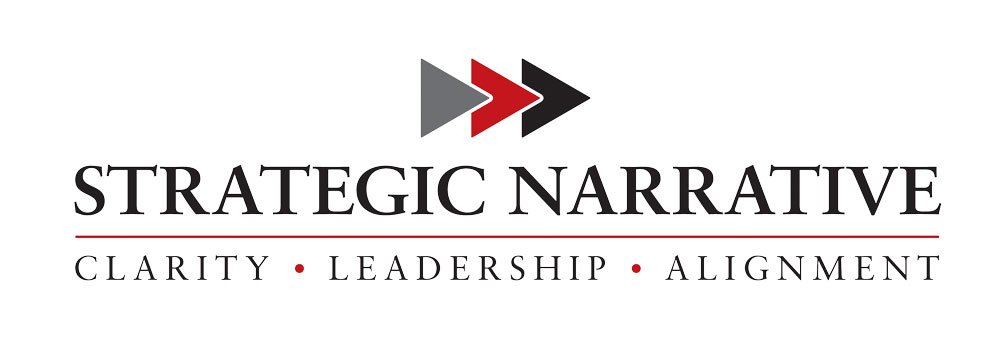Does a company have a soul? And how do you avoid AI destroying it?
Does a company have a soul? And could AI destroy it?
I had a conversation with my partner today about my energy bill. It was prompted by a cold call offering me an efficiency review. I joked with her: 'my energy bill has doubled since we got together.' She laughed back: 'so if we split up this would be a great efficiency move for you!'
Fortunately, our personal relationship decisions aren't based on efficiency or return on investment. In a relationship there is connection, love, warmth, partnership, fun, shared experiences, bonding, a sense of shared destiny. In short, the relationship itself has a personality.
And each person in the relationship has a soul which seeks to connect with another's.
Much of this should be true in the relationships we have in our working lives, and as customers or service providers to other people. But it’s often not – we can become transactional, calculating, ‘professional’, self-oriented, and behave as functional deliverers rather than flawed but warm people.
We become, in short, human doings rather than human beings.
And, as we know, functional delivery is exactly what our new friend AI can do well, often better.
But what is lost, both at a human level and in the organisation as a whole?
Can a company gain efficiency but lose its soul?
This question got me thinking about how companies make decisions, seemingly rationally. Increasing competition demands efficiency. Efficiency demands savings, cost cutting, more productive ways of doing things.
But if you believe, as I do, that a company has a personality, a character – yes, even a soul – then what damage is done to this as we increasingly reduce the human element and move towards a technological delivery model?
The body corporate reflects the body corporeal, and if you turned us into robots we may get things done better – but would we be something others want to engage with?
This is as true of an organisation as it is of a person. It’s a trueism that if I feel I have a relationship with an organisation and its people then I will choose them and we can work things out when things go wrong. The reason is that I trust them.
What do I trust? Something often intangible, the collection of experiences and encounters I have had with the organisation and its people that builds confidence and a sense that I want to work with them or buy from them. I would say that this organisation has a soul, a spirit that captures how it does things and an innate sense of purpose. This soul is the driving force of the organisation, something people can feel and understand but maybe not name.
You can call it culture, values or brand essence. I think it is a lot more when fully realised.
But the reverse is also true. If there is no soul connection because a human is dealing with a process, not a person, then you are in a transactional situation. It is about efficiency and delivery. And others can do that. AI can often do it. It means the service deliverer has no innate advantage over any others that can do the same thing, simply that they have won that piece of business at that time.
There is no trust, simply a functional relationship of convenience.
And the energy within the organisation that is so difficult to identify might peter out in the face of functional competition.
Making the intangible tangible
Here of course is the challenge. This is all intangible. Put a cost against ‘soul’ on the spreadsheet and see where that gets you. Or, more accurately, allocate a portion of your revenue against soul and that won’t get far either. Yet this should play a real part in decisions about automation – will we lose our soul? Will this break the invisible connection between us and our customers that is so hard to define? Will it smash the relationships between colleagues that we have spent so long developing?
What impact will that have and will it offset all of the efficiency gains?
The odd thing is that when you come to buy or sell a company this intangible asset is recognised. It goes under the wishy washy name of ‘goodwill’. It is the difference between the fair value of the net assets of the company and the actual price being paid. If this is lower than the net assets then this is called ‘badwill’.
So that raises an interesting question. Could too much AI create ‘badwill’? Improved efficiency may reduce the soul power of that organisation because of the lack of empowered and connected human beings with the capacity to really be people, not functional delivery agents.
Here’s the point…
None of this is to argue against the introduction of AI and other technological improvements. That would be silly and futile.
It is to argue that in introducing AI, those responsible involve and include the human beings, recognise the soul of the organisation as a real intangible asset and ensure they keep this idea as a central guiding principle as they decide the balance between humans and AI agents.
They can call it culture, values, brand essence, goodwill – whatever. Just ensure that this is seen as a critical element that must be nurtured and fed by any changes, not damaged or even crushed in the name of efficiency.
Human relationships are the glue that bids companies together and with their customers. We choose to work with those we trust. We tend to trust other people, not the technology. This simple idea should guide the transition to the world of AI.
Are you introducing AI? If so, Stuart can help you consider how to do this in a way that builds trust instead of destroying it.
